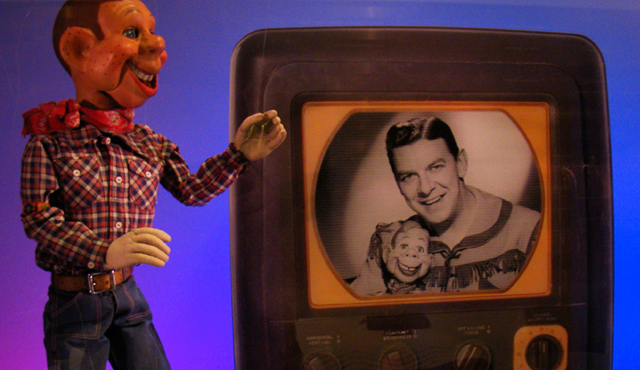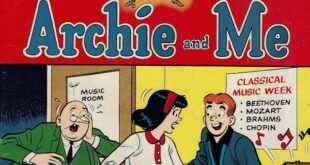My aunt Margaret had blue eyes, a blue dress and a pair of hairbrushes backed with blue velvet, all of which made sense because her birthstone was the sapphire for September. She lived with us in our Bronx apartment, but when she was in her early 20s in June 1953, she decided to revisit her native Italy.
My aunt’s departure from a Hudson River pier is my earliest memory, occurring well before my third birthday. I remember my father cradling me in one arm and telling me to wave goodbye to his youngest sister. All I could see high up on the swarming deck of the ocean liner were tiny people gesticulating frantically. A lot of men and women were weeping and waving on that pier, and so was my father.
The blast of the ship’s horn startled me. When the metal leviathan began inching away from the dock, my father’s agitation grew as he fluttered the handkerchief he’d been using to dab at his eyes. The ship’s progress toward New York Harbor elicited exclamations of “Buon viaggio!” from the sad folks all around us. For many of them, family members were departing for Italy, perhaps never to return. Aunt Margaret, however, married in my family’s village in southern Lazio and soon returned to the Bronx with a new uncle for me, Zio Fausto, who had been a carabiniere.
Another clear image from my earliest childhood vies with this memory for priority: of two deliverymen hauling into our living room our first TV — a Philco in a huge mahogany cabinet with doors and faux-gilt handles — while I ate boiled spinach on a slice of Wonder Bread. (Wouldn’t I, still a toddler, have choked on that? I mean the spinach, not the Wonder Bread.)
At that time, I knew only the southern Italian dialect of my parents and relatives, and I was rarely taken outside our Italian community in the Morris Avenue neighborhood of the South Bronx. Fascinated by the images on our new TV, I sat and watched day after day until I gradually understood what was going on. Not only was I a member of the first TV generation, but I even learned my own native language of English from television. Until I started school at age 6, TV was my main window on larger American life.
And what a peculiar view that window provided! Trigger-happy cowboy heroes in big hats alternated with pioneer warriors in coonskin caps. For a change of TV scenery, we would escape to the suburban narcolepsy of sitcoms like “Ozzie and Harriet” and “Leave It to Beaver.” In between, we were subjected to inane commercials whose jangling jingles for defunct products still occasionally carjack my mind during bouts of insomnia.
My first TV addiction was to “The Howdy Doody Show,” which I watched religiously at 5:30, Monday through Friday. But on a certain weekday holiday when my father was off from work, he decided to take me to the Ringling Brothers Circus. This exceedingly rare childhood trip to Manhattan occasioned my first schedule conflict with Howdy Doody.
Soon after we’d climbed to our seats in Madison Square Garden, Dad noticed I was more interested in the illuminated red EXIT sign and the wandering flashlight beams of the seating matrons than in the marvels we’d traveled on the subway to behold. Since we were sitting in nosebleed territory, the circus performances took place in an eerie penumbral zone far beneath us. I could barely make out the horses, their semi-naked female riders and the sluggish tigers plunging through flaming hoops. Even the dancing elephant seemed puny and generally devoid of interest at that distance.
“What time is it?” I kept asking my father.
“It’s only 1 o’clock,” he white-lied, and in each successive response he advanced the clock oozingly slowly — like Einstein playing with relativity — to allay my suspicions.
When we got home, I rushed to the living room to turn on the TV, only to discover I had missed that afternoon’s session with Howdy Doody, Clarabell the Clown, Mr. Bluster, Buffalo Bob and the Peanut Gallery. When I voiced my disappointment at my father’s deception, he realized his American son preferred televised marionettes to red-blooded entertainment involving real men, women and fearsome beasts.
And that has remained the sum total of my experience with the circus.
 Fra Noi Embrace Your Inner Italian
Fra Noi Embrace Your Inner Italian







As Always, Peter, you continue to prove you are definitely the smartest and most astute member of our class. You remain sharp, to the point, and with minimal verbiage you painted a picture of a life affecting the lifetime of most of us who attended Grammer School in the Bronx, at that particular time.
What a well written piece, to which I can identify, from waving to the ship leaving for italy from the dock(s) in NYC, white handkerchief and all. Living and growing up in the Bronx of Sicilian parents, the Americanization of their sons, to which they never understood. They may have come from the ‘Old Country” but their children, despite their misgivings, grew up on American TV, Leave it to Beaver and of course Howdy Duty Time. Many thanks for the time travel
Enjoy the reunion
Many thanks to you, Michael, my old school friend, for your overgenerous praise (which may cause me to have to stand in the corner when our class has its next reunion). Yes, it wasn’t easy to become American and be the child of immigrants who often expected us to maintain many of the beliefs and customs of the Old Country, but TV was a kind of “Welcome to the US of A” for many of us. For better or worse, we saw what Madison Avenue, Hollywood, and commercial sponsors thought would be good for us because it was good for them, but maybe that eventually taught us to take most of it with a grain of salt–and cling to many of the values that our forebears tried to instill.
Thank you, Cousin Pete, for capturing the essence of growing up Italian and American from the 50s to the 70s as first generation children of immigrants. We were raised almost exactly alike, if you will, and my sisters and I identify with your perceptive lens and observations of our roles straddling the two cultures during that time period. Love the articles you write with nostalgia and affection.
Grazie, cugina Adriana. Glad you liked this peek at a long-gone era. I try to keep in mind that if we don’t write our own history in America, no one else will. This kind of brief take is just a tiny step in that direction, but sometimes, as Dante wrote in the Paradiso, “A tiny spark gives rise to mighty flames.” We need to encourage one another by reflecting that, although it was often difficult for our immigrant families to adapt to a very different culture, we did it, all in all, magnificently–and without a huge amount of fanfare or material aid or special dispensations from the entrenched powers of that time.
Right you are, right you are…
Regards to all with warm wishes!